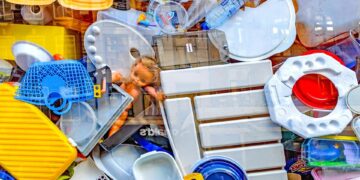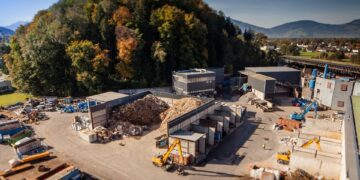Unlocking the Power of Zero Waste: A Sustainable Future for All
In today’s world, the concept of zero waste has become increasingly important as we strive to create a more sustainable future for our planet. From reducing our carbon footprint to minimizing landfill waste, embracing a zero waste lifestyle can have a significant impact on the environment. In this article, we will explore the power of zero waste and how it can help us build a more sustainable future for all.
What is Zero Waste?
Zero waste is a philosophy that aims to eliminate waste by redesigning products, processes, and systems to prevent waste generation. It encourages the reuse, recycling, and composting of materials to divert them from landfills and incinerators. The goal of zero waste is to create a closed-loop system where resources are used efficiently and sustainably, without producing any waste that cannot be reused, recycled, or composted.
The Benefits of Zero Waste
Embracing a zero waste lifestyle can have numerous benefits for both the environment and society. By reducing waste, we can conserve natural resources, reduce pollution, and lower greenhouse gas emissions. Zero waste also promotes a more circular economy, where materials are continually reused and recycled, leading to cost savings and job creation. Additionally, zero waste can help communities become more resilient in the face of climate change and other environmental challenges.
How to Achieve Zero Waste
Achieving zero waste requires a combination of individual action, community engagement, and policy changes. Individuals can start by reducing their consumption, reusing items, and recycling materials. Composting organic waste can also help divert valuable nutrients from landfills. Communities can implement zero waste initiatives, such as curbside recycling programs and composting facilities, to make it easier for residents to reduce waste. Policymakers can support zero waste by implementing regulations that promote recycling and composting, as well as incentivizing businesses to reduce waste through tax breaks and grants.
Common Misconceptions About Zero Waste
There are several common misconceptions about zero waste that can discourage people from embracing this lifestyle. One of the biggest misconceptions is that zero waste is expensive and time-consuming. While some zero waste products may be more expensive upfront, they can often save money in the long run by reducing the need to buy disposable items. Additionally, adopting zero waste habits, such as bringing reusable bags and containers, can actually save time by reducing trips to the store. Another misconception is that zero waste is all or nothing, when in reality any steps towards reducing waste are valuable and should be celebrated.
Challenges of Implementing Zero Waste
While the benefits of zero waste are clear, there are also challenges to implementing this philosophy on a larger scale. One of the biggest challenges is changing consumer behavior and overcoming the convenience of disposable products. Many people are used to the convenience of single-use items, such as plastic water bottles and takeout containers, and may be resistant to making the switch to reusable alternatives. Additionally, infrastructure limitations, such as lack of recycling facilities or composting programs, can make it difficult for communities to achieve zero waste goals. Policymakers and businesses must work together to address these challenges and create a more sustainable future for all.
Conclusion
In conclusion, unlocking the power of zero waste is essential for building a sustainable future for all. By reducing waste, conserving resources, and promoting a circular economy, we can create a more resilient and prosperous society. While there are challenges to implementing zero waste on a large scale, the benefits far outweigh the costs. By taking individual action, engaging with our communities, and supporting policy changes, we can all contribute to a more sustainable future for generations to come. Let’s embrace the power of zero waste and work towards a healthier planet for all.











